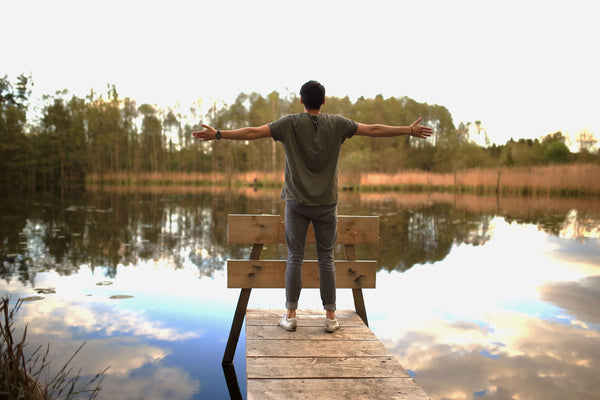
The Way of Reaction
tai attitude4 min read
They say action is everything, but to tell the truth, action is just half of the story; the other half is what happens after, which is reaction.
Newton says that for every action, there will be a reaction. To put this great law into an analogy, it would be “life is like a film; the action makes the play, while the reaction makes the drama”.

Others' actions and reactions are out of our control; for this reason, never attempt to control them. Rather, we have self-control, and when we master both our actions and reactions, we can indirectly influence others actions and reactions towards us.
We do not control people; we influence them.
To elaborate, for every action we take, we desire a reaction in return. Always.
Interestingly, it is exactly the same for other people. For their action towards us, they are desiring a reaction from us too.
In this article, let’s focus on ourselves, particularly our *reactions. Let's now assume that they have applied their action towards us, and now it is up to us to react.
Thankfully, reactions are learnable. Every single daily interaction is an opportunity for us to practise how to react. Let's see some examples for a clearer understanding.
Good action, responded with the desired reaction
- Your employer treats you to dinner, and you respond with kind words and gestures.
- Your friend buys you a birthday present, and you give her a hug.
- The barista at the café sends coffee to your table; you make eye contact and say thank you.
- The flight attendant greets you with a smile. You ask her how her day is going.
- Mom calls to ask how life is; you tell her you are seeing her soon.
When we react with the reaction they desire, they’ll feel good about continuing doing it. Our reaction has indirectly encouraged their action.
Good action, responded with the undesired reaction
- Your employer treats you to dinner; you ask, “It's a long day at work; may I leave early?”
- Your friend buys you a birthday present; you say I'll open it when I'm free.
- The barista at the café sends coffee to your table; your eyes never leave your laptop.
- The flight attendant greets you with a smile. You ignored.
- Mom calls to ask how life is; you reply, I'm busy.
When we react with the undesired reaction, it will stop them from continuing doing it. Our reaction has indirectly discouraged their action.
Poor action, responded with the desired reaction
- Your manager scolds you for the mistake you’ve made, and you apologise more than once.
- A co-worker made a mistake, causing you inconvenience. You tell them, “It's okay.”
- Your friend did not answer your urgent call; you then said regretful words to him.
- The cashier at the restaurant is rude to you. You stayed quiet and then complained elsewhere.
- Your junior coworker has low self-esteem for underperforming on the team. You label him as the weak link.
When we react with the reaction they desire, they’ll sub-consciously realise their action towards us is very effective, so they'll continue doing it. In other words, our reaction has indirectly encouraged their action; hence, our life circumstances repeat themselves again and again.
Poor action, responded with the undesired reaction
- Your manager scolds you for the mistake you’ve made; you listen silently and then say, 'Ok, now lets us brainstorm a solution instead'.
- A co-worker made a mistake, causing you inconvenience. You say the next time I make a mistake, forgive me, too.
- Your friend did not answer your urgent call. You text to ask if he is okay.
- The cashier at the restaurant is rude to you. You tip her, smile at her, and say “I hope you feel better”.
- Your junior coworker has low self-esteem for underperforming on the team. You are listening and being encouraging to him.
When we react with the undesired reaction, they’ll sub-consciously realise their action towards us is not very effective, so they’ll try another way. Therefore, our reaction has indirectly discouraged them from repeating their actions.
For good action towards you, you reward them with their desired reaction. This continues the same good action. Life is good.
For poor action towards you, you do not reward them with their desired reaction. This cancels the same poor action. Life turns good.
Moral of the article? Your reaction is too important to be overlooked. Realise that your action is only half the story; hence, do not just solely focus on what you do, but also on how you react to people and situations. When you master how you react, you will have a lot of good people and things coming your way.
In addition, reaction has nothing to do with profession but everything to do with character. Simply put, mastering our own reactions is part of our own character development. You wish to be of better character? Pay attention to your reaction.



